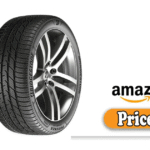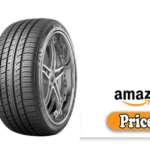In automotive maintenance, engine oil plays a pivotal role in ensuring optimal performance, longevity, and protection of your vehicle’s engine. Among the top contenders in the motor oil industry are Valvoline and Castrol, two powerhouse brands with decades of experience, innovation, and consumer trust behind them.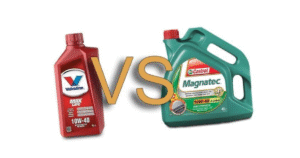 But when it comes to Valvoline vs Castrol, which stands out? Which offers better performance? Which delivers more value for your hard-earned money?
But when it comes to Valvoline vs Castrol, which stands out? Which offers better performance? Which delivers more value for your hard-earned money?
This comprehensive comparison dives into both brands’ strengths, weaknesses, and unique features. Whether you’re a weekend DIYer, a performance enthusiast, or a daily commuter, this article will help you make an informed decision.
What I Like
Valvoline
- Trusted Legacy: One of the oldest oil brands in the U.S., Valvoline has a long-standing reputation for quality.
- High-Performance Synthetic Options: Valvoline’s Advanced Full Synthetic and High Mileage formulas are industry favorites.
- Clear Labeling: Simple product naming and easy-to-read packaging make it easier for consumers to choose.
- Strong Cold Start Protection: Performs well in cold climates, reducing engine wear during startups.
Castrol
- Advanced Additive Technology: Castrol EDGE with Fluid Titanium Technology offers excellent film strength and wear protection.
- Global Recognition: Used and recommended by many European automakers like BMW, Audi, and Jaguar.
- Excellent High-Temperature Stability: Maintains viscosity even under extreme conditions.
- Wide Product Range: Offers options for virtually every vehicle, from economy cars to high-performance engines.
What Could Be Better
Valvoline
- Premium Pricing: Valvoline can be more expensive than other mid-tier oils, especially in smaller retail quantities.
- Less OEM Backing: Compared to Castrol, fewer automakers officially recommend or factory-fill Valvoline.
Castrol
- Complex Product Line: Too many variations can confuse first-time buyers (e.g., GTX, EDGE, Magnatec, etc.).
- Thicker in Cold Weather: Some users report that Castrol oils feel thicker during cold starts compared to Valvoline.
My Personal Experience
Over the years, I’ve had the chance to use both Valvoline and Castrol in multiple vehicles, ranging from older sedans to newer turbocharged models. Here’s what I noticed:
- With Valvoline Advanced Full Synthetic, engine operation felt smooth, and oil consumption was minimal between changes. It held up very well in both summer and winter driving conditions.
- With Castrol EDGE, I noticed quieter engine performance at high RPMs. The oil looked cleaner during drain intervals, and wear seems to have been minimal over 50,000+ miles of usage.
In terms of oil change intervals, both brands allowed me to stretch to 7,500 miles comfortably without any noticeable degradation in performance.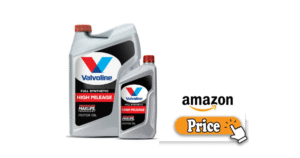
👉🏿👉🏻 Check Latest Price and Offer at Amazon 👈🏻👈🏿
Design
Motor oil design isn’t just about packaging; it includes formulation, viscosity, and the technology behind the oil.
Valvoline
- Formulation: Valvoline uses a proprietary mix of synthetic base oils and premium additives. The High Mileage MaxLife oil is specially designed for vehicles with over 75,000 miles.
- Viscosity Range: Offers a broad range, including 0W-20, 5W-30, 10W-30, and even heavier grades.
- Innovation: Valvoline was among the first to introduce high-mileage oils, and its R&D continues to innovate in wear protection.
Castrol
- Fluid Titanium Technology: The standout innovation in Castrol EDGE, it strengthens the oil film under pressure, offering superior metal-to-metal contact protection.
- Magnatec Technology: Contains intelligent molecules that cling to engine parts, providing extra protection during startup.
- OEM Approvals: Castrol often meets and exceeds specs like API SP, ILSAC GF-6, ACEA standards, and various manufacturer approvals.
Performance
When it comes to engine performance, the motor oil you choose plays a critical role in thermal stability, wear protection, deposit control, and fuel economy.
Valvoline
- Wear Protection: Performs exceptionally in independent wear tests. Valvoline oils often score among the best in ASTM D6595 and other standard tests.
- Thermal Stability: Holds up well under high temperatures, suitable for both daily driving and spirited performance.
- Fuel Efficiency: While not specifically formulated for maximum fuel economy, Valvoline still offers solid MPG performance thanks to its low-friction design.
Castrol
- Wear and Friction Reduction: Fluid Titanium technology visibly thickens under pressure to protect critical engine components.
- High Shear Stability: Maintains viscosity under extreme load, ideal for turbocharged and high-performance engines.
- Fuel Savings: Castrol EDGE 0W-20 has shown up to 2% better fuel economy in some independent tests.
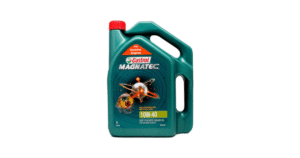 👉🏿👉🏻 Check Latest Price and Offer at Amazon 👈🏻👈🏿
👉🏿👉🏻 Check Latest Price and Offer at Amazon 👈🏻👈🏿
Build Quality
Motor oil “build quality” refers to the consistency of the blend, base oil purity, and the effectiveness of the additive package.
Valvoline
- Base Oil Purity: Uses Group III base stocks in most synthetics, offering strong oxidation resistance and good longevity.
- Additives: A well-balanced package that includes anti-wear agents, detergents, dispersants, and antioxidants.
- Consistency: Each bottle offers uniform performance due to Valvoline’s vertically integrated manufacturing process.
Castrol
- Premium Blends: Castrol often uses higher-end Group IV base oils in its synthetic products.
- Advanced Additives: Rich in molybdenum and boron compounds, Castrol oils provide excellent detergent action and metal protection.
- OEM Collaboration: Castrol’s partnerships ensure that their oils meet the strictest build and testing standards globally.
Alternative Option
While Valvoline and Castrol are elite brands, there are other high-quality alternatives you might consider:
Mobil 1
- Industry-Leading Synthetic Oil: Known for long-lasting protection and widespread OEM approval.
- Great for Performance Applications: Mobil 1 ESP and Extended Performance series are well-regarded in racing and high-output engines.
Pennzoil
- Made from Natural Gas: Pennzoil Platinum uses GTL (Gas-to-Liquid) technology for ultra-clean base oil.
- Strong Sludge Resistance: Excellent choice for city driving and engines prone to deposit buildup.
Read More: Royal Purple vs Mobil 1: The Ultimate Motor Oil Showdown
Final Thought
When it comes to the debate of Valvoline vs Castrol, the answer isn’t one-size-fits-all. Each brand brings unique strengths to the table:
- Choose Valvoline if you value simplicity, proven high-mileage formulas, and solid cold-start protection.
- Choose Castrol if you want cutting-edge technology, OEM-recommended formulations, and superior performance under pressure.
Ultimately, both brands offer exceptional products that will protect your engine and keep your vehicle running smoothly. The final choice comes down to your specific vehicle, driving habits, and personal preferences.
FAQs:
1. Is Valvoline better than Castrol?
Not necessarily. Valvoline offers great high-mileage and cold-weather performance, while Castrol excels in high-pressure environments and advanced technology. Your driving style and engine type will determine the better fit.
2. Which oil is better for high-mileage vehicles?
Valvoline MaxLife High Mileage is one of the most trusted options for vehicles over 75,000 miles. Castrol GTX High Mileage is also a strong contender.
3. Can I switch between Valvoline and Castrol?
Yes, as long as the oil viscosity and type (synthetic, semi-synthetic) match your vehicle’s manufacturer recommendations. Just avoid mixing brands in the same oil change.
4. Which brand has more OEM approvals?
Castrol has more factory fill endorsements, especially among European automakers. However, Valvoline meets all necessary industry certifications as well.
5. Are both brands available in conventional and synthetic versions?
Yes. Both Valvoline and Castrol offer conventional, synthetic blend, and full synthetic oils.
6. How often should I change my oil when using Valvoline or Castrol?
Generally, every 5,000–7,500 miles for synthetics, or as recommended by your car’s owner manual. Both brands are engineered for extended performance, especially their premium synthetic lines.
7. Which oil is more affordable?
Valvoline is often slightly less expensive at bulk purchase points like Walmart or Amazon. Castrol tends to be pricier but offers frequent coupons and deals.
Conclusion
Whether you’re a long-time Castrol user or a Valvoline loyalist, you can’t go wrong with either brand. Both are engineered for reliability, performance, and durability. Just tailor your choice to your specific driving needs and vehicle requirements.

